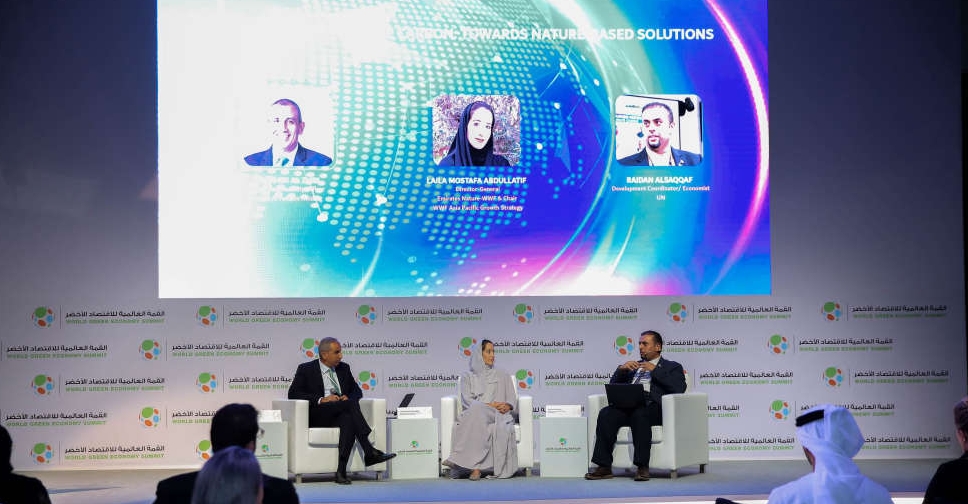
The 10th edition of the World Green Economy Summit (WGES), organised by the Dubai Supreme Council of Energy, Dubai Electricity and Water Authority (DEWA) and the World Green Economy Organisation (WGEO), will place a special focus on climate finance as its central theme.
Recognised as a key driver for enhancing climate resilience, climate finance will be a primary topic of discussion among global leaders, experts and specialists in green finance during the summit in Dubai from October 2-3.
Amid the escalating climate challenges the world is facing, the role of climate finance in bolstering resilience across different regions has become increasingly vital, particularly for the most vulnerable countries.
Adequate funding is essential to support mitigation and adaptation initiatives, empowering these countries to manage the effects of climate change while advancing sustainable development.
According to the Global Landscape of Climate Finance 2023 report by the Climate Policy Initiative, global investments in climate projects rose to $1.3 trillion between 2021 and 2022.
However, to achieve the 1.5°C target set by the Paris Agreement, these investments need to increase fivefold. As a leader in global climate action, the UAE has taken a prominent role in driving efforts to mobilise climate finance through a range of global initiatives that advance the global climate agenda and strengthen international co-operation in environmental sustainability and supporting the green transition.
“The World Green Economy Summit has established itself as a cornerstone of the global climate movement and a premier platform for discussions on various green transition issues.
"The 10th edition of the summit builds on the outcomes of the United Nations Framework Convention on Climate Change (COP28), hosted by the UAE last year in Expo City Dubai. One of COP28's significant achievements was the historic UAE Consensus, which set a new course for international climate action through an ambitious and comprehensive plan.
"Among the major decisions was the launch of the UAE Framework for Global Climate Resilience, aimed at bolstering global adaptation efforts to address climate change effects by supporting climate-resilient sustainable development goals.
"This year, the summit emphasises climate finance as a vital tool in building a green, resilient and equitable future. By mobilising the necessary funding and investments, we aim to bridge the gap between developed and developing countries, support the most affected communities and align with local and global efforts to utilise financial mechanisms to combat the impacts of climate change,” said Saeed Mohammed Al Tayer, Vice Chairman of the Dubai Supreme Council of Energy, MD&CEO of DEWA and Chairman of WGEO.
At COP28, the UAE introduced the ALTERRA Fund, designed to rapidly mobilise capital to activate the components of a new climate economy.
The fund allocates approximately AED 92 billion to support climate investments that accelerate the transition to a resilient and climate-neutral economy, while also earmarking more than AED 18 billion to mitigate risks and stimulate investment flows to address challenges hindering climate investment in the least developed countries and small island developing states.
“Dubai is accelerating its drive to achieve carbon neutrality through innovative energy solutions. At Etihad ESCO, every retrofit and solar installation we undertake is a step toward a city that excels economically while leading the way in environmental stewardship to combat climate change. A typical commercial building retrofitted by Etihad ESCO can reduce its carbon footprint by up to 35 per cent,” said Dr Waleed Alnuaimi, CEO of Etihad Energy Services (Etihad ESCO).
“Sustainability is the heartbeat of our operations. Our Circularity Report underscores our unwavering commitment to sustainable business models as we strive for Net Zero by 2040.
"In the dynamic fashion sector, which accounts for approximately 10 percent of global CO2 emissions, adopting circular initiatives is not optional but essential. The GCC re-commerce luxury market, valued at $480 million to 4500 million in 2022 and growing at 15 per cent annually, exemplifies the shift towards circularity driven by conscious consumer behaviour and luxury brands adapting globally.
"This trend reflects a significant paradigm shift where policymakers, regulators, brands, retailers and customers must align to drive forward sustainable practices. At Chalhoub Group, we are leveraging these insights to innovate and strengthen our strategy and operations, ensuring that sustainability remains the core of our business ethos,” said Florence Bulté, Chief Sustainability Officer, Chalhoub Group.


 UK's Jaguar Land Rover to halt US shipments over tariffs
UK's Jaguar Land Rover to halt US shipments over tariffs
 US starts collecting Trump's new 10% tariff
US starts collecting Trump's new 10% tariff
 Nasdaq set to confirm bear market as Trump tariffs trigger recession fears
Nasdaq set to confirm bear market as Trump tariffs trigger recession fears
 Dana Gas and Crescent Petroleum exceed 500M boe in Khor Mor field
Dana Gas and Crescent Petroleum exceed 500M boe in Khor Mor field



